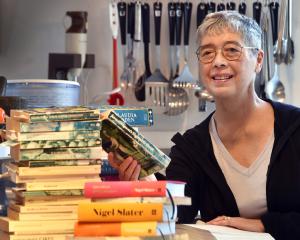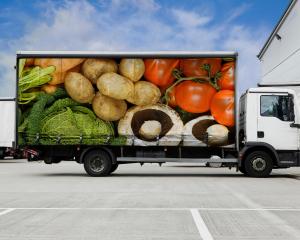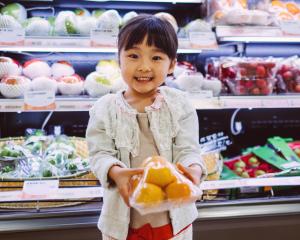

New Zealand’s vegetable production was down 20%-30% during the lockdown as farmers markets and independent fruit and vegetable retailers could not operate or sell their produce, he said.
Being locked down at home in March and April with markets, small vendors and producers, as well as takeaways and eateries closed, we had to rely on supermarkets for all our food and to cook it ourselves.
Supermarkets managed to maintain the food supply although panic buying depleted some goods, such as flour and toilet paper.
The advice to order groceries online seemed like a good idea, but the systems couldn’t cope with the floods of orders.
However, for the food-insecure finding affordable food was more difficult and demand for food parcels escalated. Although Dunedin did not have the extreme demand experienced in Auckland, local foodbanks said there was a significant increase in people seeking food parcels, many of whom had not sought their help before.
David McKenzie, communities ministries manager at the Dunedin Salvation Army, said Dunedin’s needs were different to those in Auckland.

"It may be to do with the size of the city. Folks we often see are used to living hand-to-mouth, and anecdotally there were not things to spend money on anyway," he said
"With restaurants and takeaways closed, some people with no cooking skills or equipment had problems, especially single men whose only cooked meal of the day might be fish and chips. Some people only have a microwave."
Jollene Warrington, social work practice manager at Presbyterian Support, said that last year they gave away 207 food parcels in August but this year it was 252.
"We saw people who either had no entitlement left through Work and Income, or had extremely large power bills they couldn’t pay, or it was Covid-related — either they’d lost their job or couldn’t meet the threshold."
Before Covid, the foodbank’s cupboards were bare, but when it hit, a lot of generous donations came in, she said
With restaurants closed, some companies who would have supplied them donated surplus food, and producers had excess fruit, vegetables, meat and eggs, which they donated. There was a huge surplus of pork that would have gone to restaurants, which the Government bought and suppled to food rescue organisations, and some local companies, such as Harbour Fish and Silver Fern Farms, donated product and would continue to do so, according to Mr Mckenzie.
The DCC, local foodbanks and food rescue organisation KiwiHarvest, worked together to co-ordinate the distribution. KiwiHarvest secured freezer space and distributed the food.
"It’s been amazing the quantity of food coming in. We couldn’t supply the demand if we didn’t have that. Octacan was a huge help as well. It just amazes me with Covid and how everyone is struggling and people still come through the door, wanting to give something back. Some people came in and say, ‘You helped me a year ago and I want to give something back’. It’s really lovely," Ms Warrington said.
However, the foodbanks and other social organisations are anticipating a growth in demand for food parcels in the next few months. The winter energy supplement finished at the end of September and wage subsidies are winding down.
"We’ll begin to see folks who have not been in this position of need before. The winter energy supplement is around $60 — and that can be the difference. We are also beefing up financial mentoring," Mr McKenzie said.
"At the moment it’s steady, but we don’t really know what will happen."
Ms Warrington agrees: "The biggest worry for us is the next few months in the lead-up to Christmas, because we know the wage subsidy is stopping, the energy subsidy finished ... it could be a really grim Christmas for some people."













